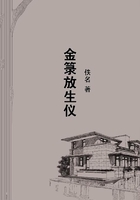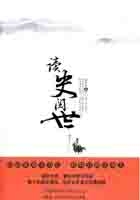Brant heard no more; the facing around of his old companion towards the bar gave him that opportunity of escaping he had been waiting for. The defection of Hooker and his peculiar inventions were too characteristic of him to excite surprise, and, although they no longer awakened his good-humored tolerance, they were powerless to affect him in his greater trouble. Only one thing he learned--that Hooker knew nothing of his wife being in camp as a spy--the incident would have been too tempting to have escaped his dramatic embellishment. And the allusion to Senator Boompointer, monstrous as it seemed in Hooker's mouth, gave him a grim temptation. He had heard of Boompointer's wonderful power; he believed that Susy would and could help him--Clarence--whether she did or did not help Hooker. But the next moment he dismissed the idea, with a flushing cheek. How low had he already sunk, even to think of it!
It had been once or twice in his mind to seek the President, and, under a promise of secrecy, reveal a part of his story. He had heard many anecdotes of his goodness of heart and generous tolerance of all things, but with this was joined--so said contemporaneous history--a flippancy of speech and a brutality of directness from which Clarence's sensibility shrank. Would he see anything in his wife but a common spy on his army; would he see anything in him but the weak victim, like many others, of a scheming woman? Stories current in camp and Congress of the way that this grim humorist had, with an apposite anecdote or a rugged illustration, brushed away the most delicate sentiment or the subtlest poetry, even as he had exposed the sham of Puritanic morality or of Epicurean ethics. Brant had even solicited an audience, but had retired awkwardly, and with his confidence unspoken, before the dark, humorous eyes, that seemed almost too tolerant of his grievance. He had been to levees, and his heart had sunk equally before the vulgar crowd, who seemed to regard this man as their own buffoon, and the pompousness of position, learning and dignity, which he seemed to delight to shake and disturb.
One afternoon, a few days later, in sheer listlessness of purpose, he found himself again at the White House. The President was giving audience to a deputation of fanatics, who, with a pathetic simplicity almost equal to his own pathetic tolerance, were urging upon this ruler of millions the policy of an insignificant score, and Brant listened to his patient, practical response of facts and logic, clothed in simple but sinewy English, up to the inevitable climax of humorous illustration, which the young brigadier could now see was necessary to relieve the grimness of his refusal. For the first time Brant felt the courage to address him, and resolved to wait until the deputation retired. As they left the gallery he lingered in the ante-room for the President to appear. But, as he did not come, afraid of losing his chances, he returned to the gallery. Alone in his privacy and shadow, the man he had just left was standing by a column, in motionless abstraction, looking over the distant garden. But the kindly, humorous face was almost tragic with an intensity of weariness! Every line of those strong, rustic features was relaxed under a burden which even the long, lank, angular figure--overgrown and unfinished as his own West--seemed to be distorted in its efforts to adjust itself to; while the dark, deep-set eyes were abstracted with the vague prescience of the prophet and the martyr. Shocked at that sudden change, Brant felt his cheek burn with shame. And he was about to break upon that wearied man's unbending; he was about to add his petty burden to the shoulders of this Western Atlas. He drew back silently, and descended the stairs.
But before he had left the house, while mingling with the crowd in one of the larger rooms, he saw the President reappear beside an important, prosperous-looking figure, on whom the kindly giant was now smiling with humorous toleration. He noticed the divided attention of the crowd; the name of Senator Boompointer was upon every lip; he was nearly face to face with that famous dispenser of place and preferment--this second husband of Susy! An indescribable feeling--half cynical, half fateful--came over him. He would not have been surprised to see Jim Hooker join the throng, which now seemed to him to even dwarf the lonely central figure that had so lately touched him! He wanted to escape it all!
But his fate brought him to the entrance at the same moment that Boompointer was leaving it, and that distinguished man brushed hastily by him as a gorgeous carriage, drawn by two spirited horses, and driven by a resplendent negro coachman, dashed up.
It was the Boompointer carriage.
A fashionably-dressed, pretty woman, who, in style, bearing, opulent contentment, and ingenuous self-consciousness, was in perfect keeping with the slight ostentation of the equipage, was its only occupant. As Boompointer stepped into the vehicle, her blue eyes fell for an instant on Brant. A happy, childlike pink flush came into her cheeks, and a violet ray of recognition and mischief darted from her eyes to his. For it was Susy.















